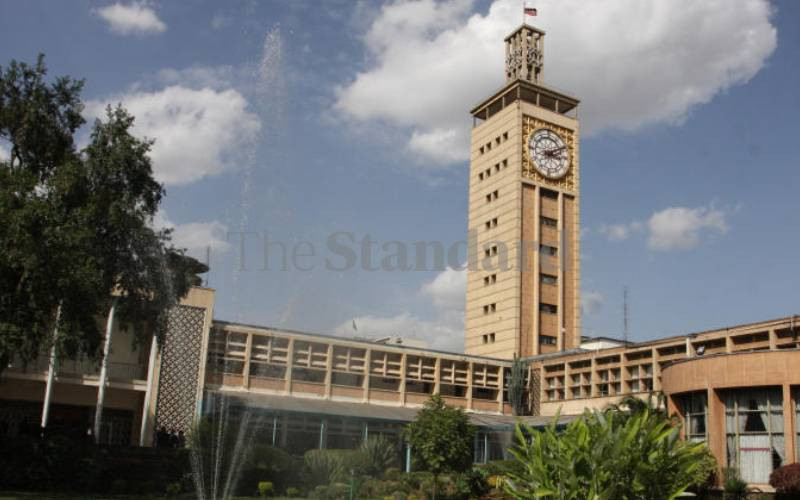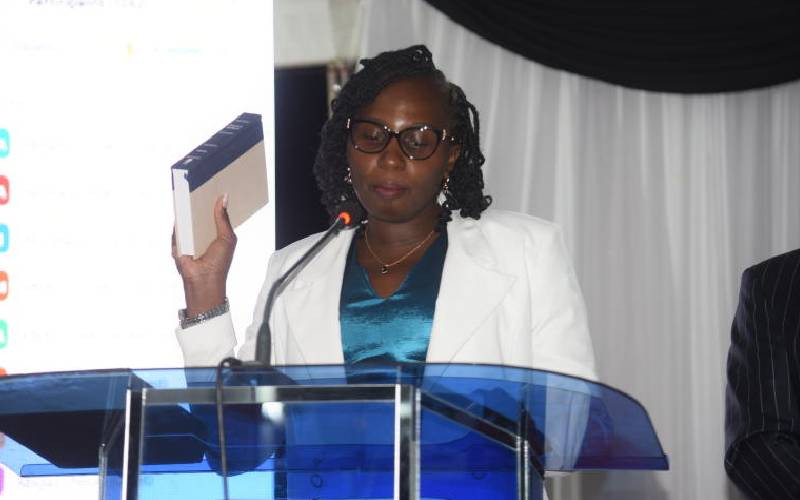Kenya: Two Law Society of Kenya (LSK) members want the High Court to declare 11 sections of the LSK Act 2014 unconstitutional.
Wilson Kamande and Edwin Sifuna are seeking to have sections 17 (c) 18 (1), 22, 23 (d), 24, 25 26, 29, 31, 36 and 41 nullified on grounds that they are discriminatory against most members and they do not promote good governance as provided for in the Constitution.
The two lawyers argue that section 17 (2c) of the Act locked out people with less than 25 years in legal practice from being representatives of the society.
The disputed Act makes provision for “three representatives of the general membership of the society, one whom shall be an advocate of at least 25 years in practice.” Those with 24 years and below are said to be the majority in the society.
National values
In the case before Justice Isaac Lenaola, the two further allege that the positions of both the president and the vice president of the society has been cut out for the members who were in the council and have 15 years experience in legal practice. This is also said to be marshalling for inequality in the legal professionals’ body.
“All paid up members of the society have a right to vie for any office of the society including the office of the president and vice president without any restrictions as to age or number of years in practice,’’ they said.
They also challenged the removal of members of the council, saying that the Act deliberately failed to include breach of national values and failure to meet constitutional thresholds on leadership and integrity as one of the grounds for removal from office.
Unbridled powers
The duo claimed that this gave the council a cover from being questioned on accountability, transparency and personal responsibility in case of neglect or failure to perform office duties.
“The petitioners contend that council being composed of officials elected by the membership is answerable to the membership and should not have unbridled powers as set out in the Act,” they argued.
The two also lamented that the Act gave selective rights to the members of the council when it comes to voting and also in convening general meetings. The law reportedly gives the council the right to prescribe the procedure of voting at the general meetings.
“The Act gives preferential treatment to council members as regards the convening of a general meeting by making it easy for the council members to convene such meetings while placing an unreasonable requirement to ordinary members,” they said.
The court heard that the public was never consulted in the enactment of the Act. Sifuna and Kamande argued that since the public are the consumers of legal services, they ought to be heard and their views be incorporated in the Act.
Stay informed. Subscribe to our newsletter
 The Standard Group Plc is a
multi-media organization with investments in media platforms spanning newspaper
print operations, television, radio broadcasting, digital and online services. The
Standard Group is recognized as a leading multi-media house in Kenya with a key
influence in matters of national and international interest.
The Standard Group Plc is a
multi-media organization with investments in media platforms spanning newspaper
print operations, television, radio broadcasting, digital and online services. The
Standard Group is recognized as a leading multi-media house in Kenya with a key
influence in matters of national and international interest.
 The Standard Group Plc is a
multi-media organization with investments in media platforms spanning newspaper
print operations, television, radio broadcasting, digital and online services. The
Standard Group is recognized as a leading multi-media house in Kenya with a key
influence in matters of national and international interest.
The Standard Group Plc is a
multi-media organization with investments in media platforms spanning newspaper
print operations, television, radio broadcasting, digital and online services. The
Standard Group is recognized as a leading multi-media house in Kenya with a key
influence in matters of national and international interest.








